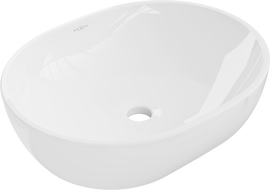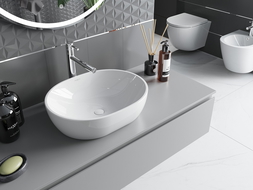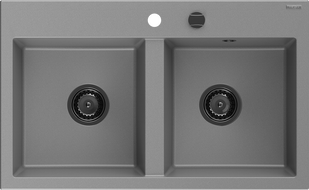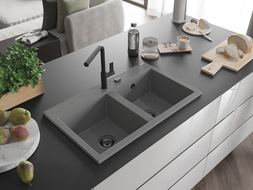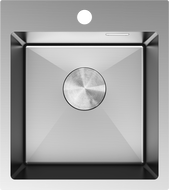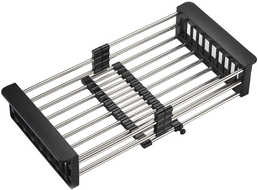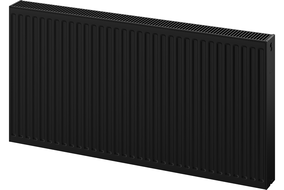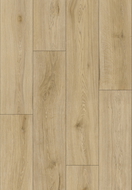
The sink is found in almost every home. Thanks to ever new technologies, everyone can adapt it to their needs and kitchen design ideas. A newly renovated room impresses with its shine and cleanliness. Everyone would like to keep this impression for as long as possible. To achieve this effect, you need to regularly take care of the kitchen surface, especially the sink. What products should be chosen for the various materials available on the market? Is there a universal way to extend the life of every sink?
Where to start – basic maintenance of every sink
Without consistency, there will be no results. To keep your sink looking beautiful, you need to devote a little time to it regularly. Otherwise, even the best cleaning products will be of no use. Manufacturers recommend cleaning the sink with a mild detergent after each use, rinsing with warm water, and wiping dry. This prevents streaks from forming. However, few people have the time to deal with the sink every day. Furthermore, for tougher stains, such as grease spots, this may not be enough. Therefore, it is also recommended to thoroughly clean the sink after about 30 uses, which is roughly once every two weeks. Remember to treat the sink gently. Wire brushes and files may seem like a good solution for tough grime, but they can damage the sink’s structure. Scratches will encourage dirt build-up, requiring more frequent cleaning, which is not ideal. Also, remember to promptly clean fruit stains and coffee and tea marks. Otherwise, they may leave permanent discolouration on the sink’s surface. If you wish, you can also equip your sink with special rubber mats at the bottom to protect it from damage, for instance, by sharp knives.
Features of maintaining a stainless steel sink
Due to its universal design and high durability, the stainless steel sink is the most popular. People are keen to choose it, but it’s important to remember it is not indestructible and, like any other sink, requires care. Firstly, remember that stainless steel does not like other steel objects. Frequent storage of screws or other rust-prone metal objects near the sink can lead to rust transfer. Such stains should be removed as soon as possible with dedicated agents. One problem with this type of sink is scratches. Small and barely visible scratches are not a major threat, but for more visible ones, special agents are available. Using them will help your sink look new for longer.
How to clean a granite or tegranite sink
Granite and tegranite sinks have become popular due to their unique appearance and texture. They are not perfectly smooth, so they require a bit more attention. Remember to avoid harsh cleaning agents as the material is too delicate. It’s best to replace such products with equally good homemade mixtures, such as water with vinegar or citric acid. Use only soft cloths and sponges and never treat the sink with bleach. These agents leave stains that will be impossible to remove. You must also be careful with all natural dyes, like staining fruits, beets, etc. Stains from them should be removed immediately. If you have significant problems with streaks, rub a little oil into the sink's surface.
How to care for a ceramic sink
Such solutions are rarely encountered, but ceramic sinks are also available on the market. They are by far the most resistant to dirt and damage, but this comes at a cost. Such sinks are best cleaned with a mild detergent using a cloth or sponge. Sometimes metal objects left for a long time, such as cutlery, may leave persistent stains. To remove them, use the same agents as for cleaning ceramic hobs. Ceramic sinks should not be treated with scrubbing liquids and powders, highly concentrated drain cleaning agents, or battery and steel agents.
Ways to eliminate unpleasant odours from the sink
You already know how to care for the visual aspect of every sink. However, sometimes everything seems alright at first glance, but an unpleasant odour spoils the effect. It comes from pipes where food residues accumulate. To eliminate the odour, pour a little warm water enriched with lemon juice and baking soda down the drain. You can also proactively pour hot water down the drain. This way, you’ll get rid of the smell for good.
Homemade solutions instead of strong chemical products
You can replace chemical cleaning agents with equally good homemade solutions. A stainless steel sink can be easily cleaned with vinegar and baking soda. First, pour vinegar over it, and then sprinkle with soda while scrubbing with a gentle sponge. You can also preserve the sink by rubbing it with a little oil after washing. All stains and limescale around the taps can be removed with lemon or citric acid. Such solutions are very effective, eco-friendly, and can save you some coins in your wallet.


